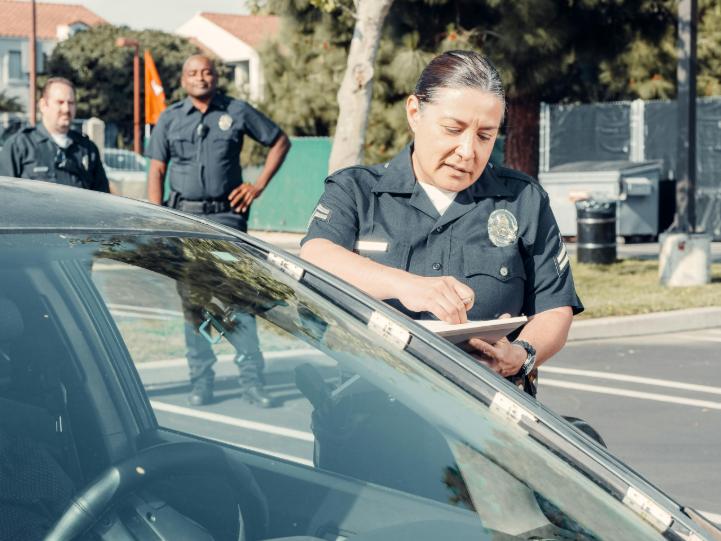What to Do If You’ve Been Charged With a Traffic Offense

Being charged with a traffic offense can feel overwhelming. Whether it’s a minor infraction like speeding or a more serious charge like reckless driving, it’s important to understand your rights and take the appropriate steps to protect yourself. Ignoring the situation or handling it improperly can lead to costly fines, license suspensions, or even legal trouble.
Understanding Your Traffic Offense
The first step in dealing with any traffic offense is understanding the specific charge. Traffic offenses are generally categorized into infractions, misdemeanors, and felonies. Knowing where your offense falls is critical to determining the appropriate action.
Common Types of Traffic Offenses
- Infractions
These are minor violations, such as running a stop sign, speeding, or failing to use turn signals. Infractions usually result in fines or points on your driving record.
- Misdemeanors
More serious than infractions, misdemeanors include charges like driving without insurance or reckless driving. A misdemeanor may require a court appearance and can carry penalties such as larger fines, license suspension, or even jail time.
- Felonies
These are the most serious traffic offenses, often involving harm to others. Examples include hit-and-run accidents, DUIs causing injury, or vehicular manslaughter. Punishments for felonies are severe, including heavy financial penalties, long-term license suspension, and imprisonment.
Key Details to Look for in Your Traffic Ticket
After receiving a traffic ticket, examine it carefully. Key details to focus on include:
- The nature of the violation (e.g., speeding, illegal parking)
- The location and time of the alleged offense
- The issuing officer’s name and badge number
- Information about the court (if a court appearance is mandatory)
- The deadline for responding to the ticket
Understanding these details will help you determine your next steps and avoid missing important deadlines.
Tips for Handling a Traffic Offense Charge
Being proactive is crucial when you’re dealing with a traffic charge. Here are several actionable steps you can take.
1. Stay Calm and Cooperative
It’s natural to feel stressed or defensive when pulled over or charged with a traffic offense. However, remaining calm and respectful when interacting with law enforcement is essential. Aggressive behavior can escalate the situation and work against you later on.
2. Keep Documentation of the Incident
Documenting the details of the incident as soon as possible can significantly strengthen your case. Write down:
- Your version of events
- Weather and road conditions at the time
- Any photographs or videos of the scene (if applicable)
- Names and contact information of witnesses
Having clear records can be especially useful if you decide to contest the charge.
3. Know Your Rights
Understanding your rights as a driver can offer you protection. For example:
- You have the right to remain silent: Avoid admitting guilt or explaining yourself unnecessarily to the officer.
- You have the right to evidence: You can request evidence, such as radar readings in speeding cases.
- You have the right to contest the ticket: You are not obligated to accept the charge without challenge.
4. Consider Contesting the Charge
Sometimes, it’s worth contesting a traffic offense, especially if you believe you were wrongly accused or if penalties like license suspension jeopardize your job. A contested ticket could lead to reduced penalties or even a dismissed charge.
Before contesting, research your state’s traffic laws and procedures. Some minor infractions can be resolved without appearing in court, while others may require a formal hearing.
5. Assess the Impact on Your Record and Insurance
Many traffic offenses add points to your driving record, which can result in increased insurance premiums or license suspension. Speak with your insurance provider to understand how the charge might affect your policy.
6. Seek Legal Help if Necessary
For more serious charges like a DUI or reckless driving, hiring a traffic attorney like Steven P. Hanna Attorney at Law is highly recommended. Here's how legal counsel can help:
- They know state and local traffic laws inside out and can identify potential errors in your case.
- They can negotiate on your behalf to reduce penalties or charges.
- They represent you in court, ensuring you don’t miss deadlines or filing requirements.
Hiring a lawyer may seem costly, but it can save you money in the long term by reducing fines and minimizing damage to your driving record.
Defensive Driving Courses to Help Prevent Future Offenses
Enrolling in a defensive driving course from a place like Defensive Driving School offers valuable benefits beyond just enhancing your driving skills; it provides a proactive approach to minimizing the risk of future traffic offenses. Defensive driving courses teach strategies for anticipating potential road hazards, understanding safe following distances, and recognizing and responding effectively to the actions of other drivers. This knowledge equips drivers with practical skills for navigating complex driving situations with greater ease and confidence.
Additionally, many insurance companies provide discounts to drivers who have completed a certified defensive driving course, offering a financial incentive to improve driving habits. By embracing the principles taught in these courses, drivers can reduce the likelihood of dangerous incidents, maintain a clean driving record, and foster a safer road environment for themselves and others.
Being charged with a traffic offense can be a stressful experience, but it’s also an opportunity to learn and grow as a driver. By understanding your rights, acting promptly, and following the tips outlined in this guide, you can handle the situation effectively and minimize its impact.
Post Your Ad Here
Comments